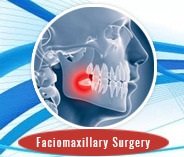Many people share two basic problems: poor oral health and one or more chronic medical conditions. The extent of decay and periodontal disease leaves many teeth beyond repair, with their surgical removal the only method of definitive treatment.
Oral surgery patients must be able to withstand the physical and emotional demands that the procedure places on them. But a coexisting medical condition can undermine the dentist’s ability to perform even a minor surgical procedure. And if the patient is taking medications for that condition, the normal intraoperative use of antibiotics, analgesics and local anesthesia may need to be modified.
Before initiating any invasive treatment the dentist must review the medical history with the patient. It may have been many months since the initial physical assessment was completed, so it must be noted if any changes have occurred, if medication dosages have changed or if a new medication has been prescribed. This review should be noted on the chart. If there is any doubt or conflict as to the accuracy of the medical history, the medical director should be contacted.
Common Medical Conditions
Cardiac Disease: Closely related to hypertension are cardiac disease, and many patients present with both. In such cases, the precautions used for both conditions must be followed. When oral surgery is indicated for patients with cardiac disease, dentists normally consult with the medical director to determine if the cardiac function is of sufficient quality to withstand the rigors of oral surgery.
Elective dental treatment should be deferred for any patient who has had a heart attack in the past six months. It is during this interval that the chance for a second heart attack is the greatest. Similarly, a patient with unstable angina in which chest pain occurs at rest also is not a candidate for oral surgery because this degree of instability could be a precursor to heart attack.
Many cardiac patients are on anticoagulant medications such as warfarin, clopidogrel and aspirin. These drugs can prevent a blood clot from forming within the extraction site and the resultant oozing can be difficult to control. The dentist must consult with the prescribing physician before surgery is performed on these patients. Usually, the medications can be discontinued before surgery and resumed the day after. The schedule must be followed exactly as directed by the physician, with appropriate orders made in the prescribing record. Care must be taken when prescribing medications for dental problems in patients with cardiac conditions because these patients may be taking several cardiac medications and drug interactions may result.
Dental antibiotic prophylaxis
For decades, the American Heart Association (AHA) recommended that patients with certain heart conditions take antibiotics shortly before dental treatment. This was done with the belief that antibiotics would prevent infective endocarditis (IE), previously referred to as bacterial endocarditis.
The new guidelines are aimed at patients who would have the greatest danger of a bad outcome if they developed a heart infection. Preventive antibiotics prior to a dental procedure are advised for patients with:
- artificial heart valves
- a history of infective endocarditis
- certain specific, serious congenital (present from birth) heart conditions, including
- unrepaired or incompletely repaired cyanotic congenital heart disease, including those with palliative shunts and conduits
- a completely repaired congenital heart defect with prosthetic material or device, whether placed by surgery or by catheter intervention, during the first six months after the procedure
- any repaired congenital heart defect with residual defect at the site or adjacent to the site of a prosthetic patch or a prosthetic device
- A cardiac transplant that develops a problem in a heart valve.
Oral Cancer: Oral cancer appears as a growth or sore in the mouth that does not go away. Oral cancer, which includes cancers of the lips, tongue, cheeks, floor of the mouth, hard and soft palate, sinuses, and pharynx (throat), can be life threatening if not diagnosed and treated early.
Prevention of oral cancer by dental management
- Don’t smoke or use any tobacco products and drink alcohol in moderation (and refrain from binge drinking).
Maintain good oral hygiene to prevent further complications like gum disease, cavities etc. - Eat a well balanced diet.
- Limit your exposure to the sun. Repeated exposure increases the risk of cancer on the lip, especially the lower lip.
- Conduct a self exam at least once a month: If you feel any lumps or enlarged lymph nodes in both sides of your neck and under your lower jaw or if you notice any changes in the appearance of your mouth, call your dentist’s office immediately to prevent mouth cancer.
- See your dentist on a regular schedule: Even though you may be conducting frequent self exams, sometimes dangerous spots or sores in the mouth can be very tiny and difficult to see on your own. So during your dental appointments, ask your oral dentist to perform an oral exam. Early detection can improve the chance of successful treatment.















